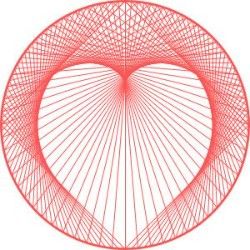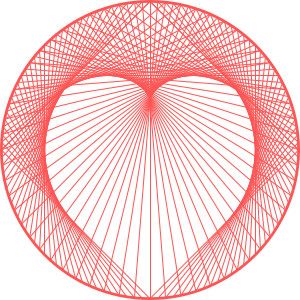Our Team
Dr. Heather Finotti
Founder & Instructor
Founder & Instructor
Background
She has taught students of all ages and stages in life, at every level of mathematical development in a variety of contexts. She started tutoring as a high school student and continued into college, began teaching professionally as an undergraduate instructor for Indiana University in 1995, taught as a teaching assistant and then primary instructor as a graduate student at the University of Texas Austin and in a few of the summers worked in the student help center at Austin Community College, led an innovative math circle program at Texas, and after finishing her PhD, taught undergraduate and graduate level courses for the Ohio State University and the University of Tennessee as a postdoctoral research professor. Other experiences include teaching a couple of individualized courses for a very small high school in Austin, and offering math anxiety support privately.
She had a son in 2008 and left academia to stay home for several years (and get him off to a great start in math, of course!). In 2012 once he began to attend school, she lectured at UT and shortly after began to teach for Art of Problem Solving. This began her professional work with young children. From 2007-2010 she ran a math circle at a local private STEM Academy. A few years prior to the pandemic, she began receiving requests to work privately with a few mathematically accelerated children, and those who haven't already graduated high school she continues to work with today. She also began homeschooling her son in 2020, and they continue homeschooling today. Gratefully, her son has maxed out the LoM class offerings as a high school junior, and has moved on to take more math courses beyond those that we offer as a senior.
For further inquiry, please contact us.
Philosophy
Instead, she's seen that we need to help students find their way to true understanding. She has seen that teaching from this perspective, honoring the innate capacity each human has to learn while meeting them where they currently are, providing a setting for learning where mistakes are embraced as teachers, there is room for creativity and flexibility in problem solving, compassion and encouragement are the norm, and high expectations are held with adequate support to meet them, can work wonders for a student's progress and set a foundation for future learning that is solid and sure.
Her priority is always first and foremost to guide her students to build comfort, self-confidence, and proficiency in the subject matter, without creating unnecessary stress or anxiety in the process. Her motto: "Never underestimate the power of understanding simple things deeply."
Dr. Ashley Ahlin
Instructor
Background
Ashley (Reiter) Ahlin has loved math since childhood, particularly finding connections between different areas of math, and finding ways to play with mathematical ideas. She completed her Ph.D. in mathematics at the University of Chicago in 2002. Her research was in the area of geometry group theory, which seeks to understand different geometries from the perspective of symmetries and depends upon the connections between different areas of mathematics. While in high school, she wrote her first mathematical research paper on fractals found in generalizations in Pascal’s triangle, connecting number theory and fractal geometry. Based on this research, she placed first in the Westinghouse Science Talent Search (now the Regeneron Science Talent Search). She also placed third at National MathCounts, and first in the Special Topic oral competition, in which students explain their solutions to a set of related problems to a panel of judges; this affirmed her interest in communicating mathematics. She was also a member of the US Chemistry Olympiad team and earned a bronze medal at the International Chemistry Olympiad.
She has always found teaching mathematics to be the most fun way to experience it; during a hiatus from her graduate studies, she taught for two years at a state-wide residential magnet school for math and science. In that context, she relished the opportunity to challenge strong students with mathematics which is not usually offered to high school students, including Linear Algebra and Group theory. She has also enjoyed working with students for whom math is not a top interest, including teaching the math course for non-STEM majors at University of Chicago (which showed the connections between geometry and number theory found in algebraic groups), and assisting faculty members who were writing the textbook for the course. Later, she taught the statistics course for non-STEM majors at Vanderbilt University and worked to connect them to the beauty and value of mathematical and statistical thinking.
Since 2004 she has focused on raising her four children, all math-philes, but with varied interests and personalities, who broaden her view of how students approach mathematics. Their schooling has varied but included all the elementary through middle school math instruction for two, and a few years of full-time homeschooling for another. Ashley also began teaching for the Art of Problem Solving in 2004 and has continued steadily since; she has focused on the “outside-the-curriculum” courses including number theory, combinatorics, and contest preparation courses. She’s also been a guest instructor in both Math WOOT and Chem WOOT.
As her children began elementary school, she started a math circle, hosted math nights and a Julia Robinson Math Festival at local schools. She has coached the local MathCounts team for more than a decade, and later began organizing summer math camps at Michigan State University, where she is employed part-time in the mathematics department. In this context, she has built her library of extra-curricular math puzzles and games. Attending national math circles to learn from other circle leaders and math enrichment luminaries has been a highlight!
Along the way, she has enjoyed connecting with students with very strong interests in math by teaching at Epsilon Camp and Campersand, and offering online seminars for the Davidson Institute, among others.
Philosophy
The vast majority of students experience only the fairly narrow set of topics which have formed the backbone of the school math curriculum, through algebra, geometry, and calculus. Much of the fascinating world of mathematics lies just “off the beaten path” and is readily accessible to young students, although it’s rarely offered to them. Ashley makes it a priority to expose students to mathematics which broadens their understanding of what mathematics is all about.
Dr. Olena Blumberg
Instructor
Background
Olena earned her PhD in Mathematics from Stanford University, and her BS in Math at the University of Waterloo. She also has an impressive record of exceptional achievement on contests, including an International Math Olympiad gold medal and excellent AMC and AIME scores. and more than a decade of tutoring.
She has an extremely wide range of teaching experience. Olena has more than a decade of tutoring experience: she has tutored kids from age 4 to college. She has taught college classes, worked for Art of Problem Solving for 6+ years (including teaching almost all of the classes and rewriting a class), and she has a wide variety of experience with various elementary level math curricula. And of course, she is an expert on math contests, including AMC 8, AMC 10, AMC 12, AIME, USAMO, IMO, Mathcounts, the Math Kangaroo, the Math Olympiad for Elementary Students (MOEMS), ARML, and the USA Math Talent Search (USAMTS).
Olena is also an expert in accelerating gifted younger children. Olena homeschools her own children and her 7th grader recently got 1560 on the SAT. She has worked with kids who are finishing up elementary math at ages 6/7 and know how to move ahead with younger learners while preserving their enthusiasm for mathematics and making sure they get a solid, thorough education without conceptual gaps.
Olena has experience helping math click for struggling learners as well. She has worked with neurodivergent children and has handled executive functioning challenges for kids with ADHD.
Philosophy
Olena is a creative and passionate educator with a deep commitment to having her students succeed and inspiring them to find joy in mathematics.
Nothing gives her as much satisfaction as seeing the "aha!" look on a student's face, and that's regardless of the subject they're working on or their mathematical ability.
She looks forward to working with you and your child!
Dr. Remus Nicoara
Instructor
Background
Remus earned his PhD in Mathematics from UCLA, and his Bachelor Degree from the University of Bucharest, Romania. He is currently a Professor of Mathematics at the University of Tennessee. His research is in the area of Operator Algebras, with applications to Quantum Information Theory.
Philosophy
One of the defining aspects of Remus’s teaching style lies in creating a sense of community, excitement and contentment in the classroom. His students know that they are never alone when working on a problem, and this leads to mathematical confidence and open communication. To this goal, Remus maintains a relaxed atmosphere, while at the same time gently encouraging students to open up and express their questions and ideas.
Dr. Luis Finotti
Instructor
Background
Luis earned a PhD in Mathematics from the University of Texas at Austin in 2001, specializing in Number Theory. Luis has 26 years of teaching experience: he is currently a professor at the University of Tennessee, and has also taught for the University of Texas at Austin as a graduate student, as well as The University of California at Santa Barbara and The Ohio State University as a postdoctoral professor. He is from Sao Paulo, Brazil, where he earned his undergraduate and masters degrees at the University of Sao Paulo in Mathematics.
Besides being a research mathematician and educator, Luis also has extensive technological knowledge. He's a self-proclaimed Linux evangelist, and used to spend his relaxation time ( pre-parenthood, of course, when such a thing still existed) reading technical books on Linux/Unix, bash, python, sed&awk, shell-scripting, and more. He routinely codes as part of his computational number theoretic research, and has also contributed to the development of the free, powerful math computation interface known as SAGE.
For the last few years, he has also enjoyed teaching courses for Art of Problem Solving, and the courses he's taught most frequently are the Number Theory and Python courses.
Philosophy


